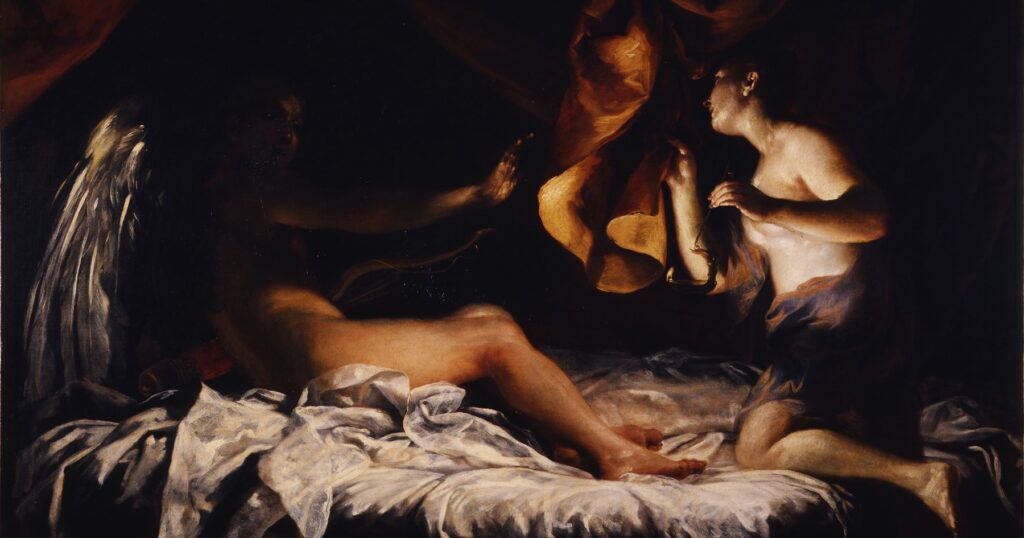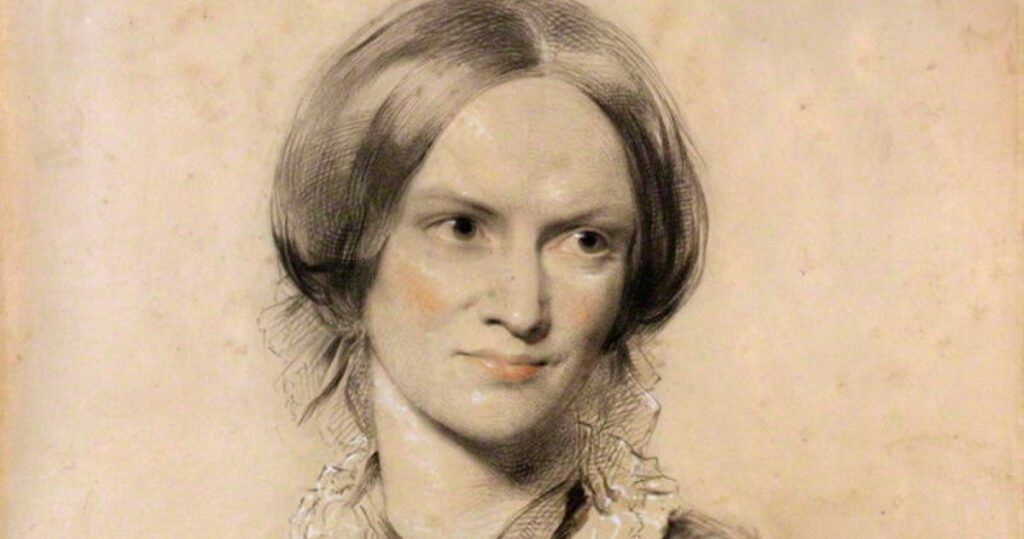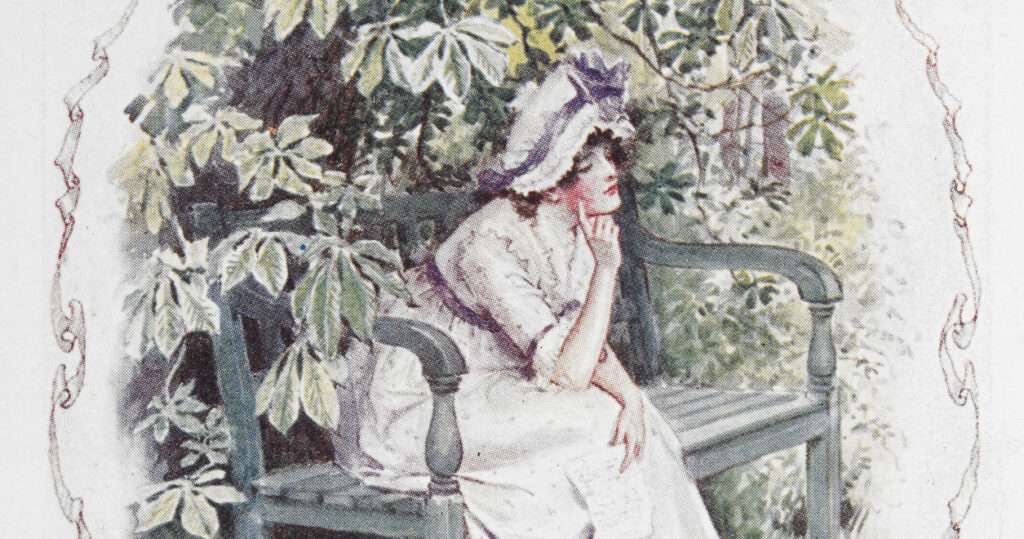A literary reflection by Amy Lakeman on C.S. Lewis's "Till We Have Faces." This is one installment of a monthly series providing reflections on works of literature from a Lutheran perspective.
C.S. Lewis, England’s “most reluctant convert,”[i] famously described God’s hound-like pursuit of his soul. Where he would be left alone, the Spirit chased and enticed. He writes of his search for God as “the mouse’s search for the cat.”[ii] A hunted man, indeed!
Lewis’s sense of huntedness is strikingly at odds with the question at the core of his self-proclaimed best book[iii], Till We Have Faces: “Why are the gods so silent?” Orual, the protagonist of this novel, spends her life striving against the divine. If the gods are real, she questions, why don’t they show themselves? “Why is their guidance not plain?”[iv]
Till We Have Faces offers a “Christianized” retelling of the myth of Cupid and Psyche, in which Venus’s son falls in love with the mortal Psyche. Lewis uses characters from antiquity to convey truths about Christian experience for the modern reader.[v] A nuanced story of divine love for the soul and human inadequacy to effect salvation, the novel can be a confusing read.
Yet it’s worth the effort: The novel brings together intricate themes from across Lewis’s writings. In many ways, Orual’s struggle to hear parallels Lewis’s own conversion, and highlights how Lewis saw God’s work. In turn, Lewis offers encouragement — from the unlikely setting of pagan mythology — for those engaging in the work of evangelism in post-Christian society.
Orual’s “silent” gods
We enter the story from the perspective of Orual, hideous sister to the lovely Psyche. Rejected by their cruel father, Orual clings to Psyche with a love that is doting at best, but selfish and consuming at worst. When the whims of public opinion result in Psyche being offered to their society’s pagan gods as a human sacrifice, Orual is grief-stricken. She sees her love for Psyche as the only good thing she can claim.
After Psyche’s supposed death, Orual returns to the sacrificial mountaintop and jarringly finds Psyche not dead, but alive and whole — more beautiful and robust than ever. Psyche was given to the god Cupid as a bride, and the mountaintop is now her divine palace.
But where Psyche sees vaulted halls and crystal panes, Orual sees only bare rock and mountain meadow. Where Psyche offers richest wine, Orual receives only cold spring water.
Convinced that Psyche is delusional and that her groom — whose face Psyche admittedly has not seen — is a monster, Orual blackmails her sister into the forbidden: looking upon her beloved by lanternlight in the night. For this disobedience, Psyche is excruciatingly exiled from her husband.
And Orual is left wondering bitterly about the gods’ cruel trick: Why couldn’t she see the palace?
Divine clamoring for Orual
Orual leans into this bitterness for most of her remaining life. Yet during an episode of grief in her waning years, she revisits the event. Through her new eyes, it becomes clear to the reader that “the gods” have emphatically not been silent.
Orual had tools — albeit limited ones — for grasping at the riddle. Her beloved Greek tutor gave her the best that stoic thought had to offer. The priest of her pagan society pointed to the awful claims of the sacred.
Lewis writes elsewhere that both “philosophers” — who appealed to the intellect — and “pagans” — who stirred the imagination — had glimmers of the truth before Christianity.[vi] Their logic and myths provided fragmented understandings of the divine, which the Gospel perfected.[vii] Lewis’s conversion and his later genius as an apologist stemmed from seeing Christian truth along both lines: throughairtight reason and vivid imagination.[viii]
God’s personal appeals to Orual also hearken to Lewis’s autobiography. As Orual rides up the mountain to recover her sister’s body, she is nearly distracted from her self-flagellating quest by the sheer beauty of the countryside. The gift of Joy almost entices her to drop her squabble with the divine.
Lewis saw joy — defined as longing for Heaven — as a signpost by which God leads us to Himself. Psyche’s exclamation, “The sweetest thing in all my life has been the longing — to reach the Mountain, to find the place where all the beauty came from,” suggests such joy.[ix] Her outburst parallels stirring themes elsewhere in Lewis’s work. His Narnian characters in the eschatological The Last Battle echo the Plato-like cry: “I have come home at last! This is my real country!”[x]
We also observe the poignant impact of grief in Orual’s narrative. Lewis acknowledges pain as God’s “megaphone” in a sinful world.[xi] The loss of Lewis’s beloved wife played a refining role in his relationship with Christ, and in loss we begin to see Orual’s defenses stripped away.
From intimate struggles to the broad sweep of history, Lewis observes God at work. In Till We Have Faces, he depicts this work by placing Orual on the receiving end of divine efforts to woo and invite.
Sinful ears on trial
In Orual’s response, we see our sinful nature. She brushes aside joy, choosing the false martyrdom of pride. When grief begins to open her eyes, she rebuffs it, pitting the half-truths of the pagans and philosophers against her beloved sister.
The pinnacle of Orual “plugging her ears” occurs just after the tragic exchange when the sisters realize the disconnect between their perceptions of reality. For one brief moment before her departure, Orual actually sees the vaulted palace and beautiful provisions of whose reality Psyche has attempted to persuade her. Instead of being silent, the god on the mountain speaks in resounding tones.
Somehow, though, Orual deludes herself. She casts doubt on the revelation and minimizes it as a trick. Like The Last Battle’s dwarves, who make themselves incapable of seeing the paradise that surrounds them,[xii] she discards the evidence, instead believing a lie.
While it is easy to criticize Orual, we are capable of nothing more, “hostile to God” in our sinful nature.[xiii] The novel makes this clear when Orual’s accusation is later flipped. In a vision that echoes Dante,[xiv] Orual, now the defendant, must read her complaints against the gods before all humankind. She is stripped to the core, literally and figuratively. With her defenses gone, the sheer selfishness of her “love” for Psyche becomes clear. Even her best was worthless.
With this utter humiliation, Orual receives her answer: The gods have never been silent; she has been unwilling — unable — to hear.
Until stripped and re-robed, Orual is powerless to hear God speaking. Until she’s given a face, she cannot come face-to-face with the divine. As Orual’s dreams continue, the role of Psyche as a Christ figure in the novel becomes clear. In place of Orual’s rags and wretchedness, she receives the name of Psyche — the beautiful, the innocent, the sacrificed.
God’s speech for post-modern “Oruals”
Through Orual’s pivotal trial, the seeming contradiction between Lewis’s huntedness and Orual’s complaints offers clarity for the contemporary Christian: God is never silent.
The idea of God “on trial” rings distinctly of Lewis’s 20th-century context. Where pre-modern man saw himself on trial, modern man interrogated God.[xv] Post-modern Christians face yet another challenge: unbelievers in a post-Christian context often don’t know or care that a trial is going on.
In the 21st century, it may seem God is especially silent. The buzz of easy entertainment, the grinding hustle of work and family demands, and the flow of negativity in the news make it perilously easy to drown God out.
But we have seen Him at work in our lives. He has called us by His Word. He has stripped and slain us in the baptismal font and raised us robed in Himself. His Spirit, not our “own reason or strength,”[xvi] makes us able to hear. Even in a post-Christian culture, God speaks loudly through Law and Gospel.
Alongside the clear gift of His Word are other glimmers of truth. God has shown “his eternal power … since the creation of the world.”[xvii] Postmodern culture may disavow the Christian roots of its virtue, but the Spirit whispers of our need for Christ — as Lewis attested — even in pre-Christian philosophy and mythology. Though “glimmers” cannot perform the saving work of the Gospel, the Spirit works through us when we witness these truths for our non-Christian friends.
Moreover, through personal experiences of grief and joy, God calls to each of His creatures. Loving relationship with nonbelievers lets us attest to God’s work in their most dire moments.
When they are stripped bare, when the Law reveals the ugliness of the soul and its inadequate efforts to hear, we proclaim Christ’s love to those in need: Christ has robed you in Himself and given you His face; “You are Psyche.”
[i] C.S. Lewis, Surprised by Joy (New York: Harcourt and Brace, 1955), Ch. 14, 221.
[ii] Lewis, Surprised by Joy, Ch. 14, 220.
[iii] Walter Hooper, C.S. Lewis: A Complete Guide to His Life & Works (New York: HarperCollins, 1996), 77.
[iv] Lewis, Till We Have Faces, (New York: Harper Collins EPub Edition, 2017), Part I, Ch. 12, 150.
[v] Jason M. Baxter, The Medieval Mind of C.S. Lewis (Lisle, IL: IVP Academic, 2002).
[vi] Lewis, “Myth Became Fact,” in God in the Dock, ed. Walter Hooper (Grand Rapids: Eerdmans, 1970); Lewis, “Christian Apologetics,” in God in the Dock; see also G.K. Chesterton, The Everlasting Man, (San Francisco: Ignatius Press, 1993).
[vii] Lewis, “Letter to Arthur Greeves” in The Collected Letters of C. S. Lewis, Vol. 1, ed. Walter Hooper (San Francisco: Harper San Francisco, 2004), 977.
[viii] John Piper, “C.S. Lewis, Romantic Rationalist,” in The Romantic Rationalist: God, Life, and Imagination in the Work of C. S. Lewis, eds. Mathis and Piper (Wheaton: Crossway, 2014).
[ix] Till We Have Faces, Part I, Ch. 7, 86.
[x] Lewis, The Last Battle (New York: Barnes & Noble, 2010), 760; Baxter, The Medieval Mind of C.S. Lewis (Lisle, IL: IVP Academic, 2002).
[xi] Lewis, The Problem of Pain (San Francisco: Harper San Francisco, 2001), 91.
[xii] The Last Battle, Ch. 13
[xiii] Romans 8:7, ESV.
[xiv] Baxter, The Medieval Mind of C.S. Lewis (Lisle, IL: IVP Academic, 2002), Ch. 7, “Deep Conversion and Unveiling.”
[xv] Lewis, “God in the Dock,” in God in the Dock (Grand Rapids: Eerdmans, 1970).
[xvi] The Third Article of the Apostles’ Creed, Luther’s Small Catechism.
[xvii] Romans 1:20, ESV.
Cover image: “Cupid and Psyche,” Giuseppe Maria Crespi, 1709.






Thank you for your reflection on this book, I look forward to rereading it with these new insights. I also appreciate your courtroom analogy of post-Christian context not caring that a trial is taking place.
I wonder if it is really true, that “in the 21st century, God is especially silent.” God is not silent, but many today do not have listening ears. Secular humanism and relativism has made inroads into Western culture, but for those whom God has called, the Lord is quietly drawing.